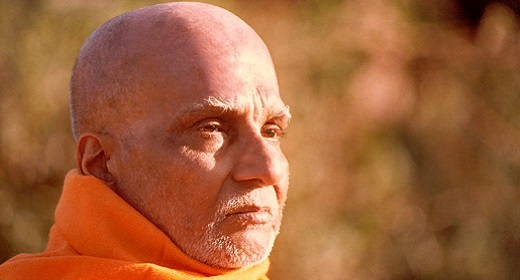3/17/11 by Jason Wachob: Sharon Salzberg is one of the leading insight meditation teachers in the world.  Read any of her books or her articles, or have the chance to see her speak in person (which I’ve had the good fortune of), and you’ll see why.
Read any of her books or her articles, or have the chance to see her speak in person (which I’ve had the good fortune of), and you’ll see why.
Sharon first encountered meditation in 1969 while studying in college, which sparked her interest and took her to India a year later for an independent study program as she was motivated by “an intuition that the methods of meditation would bring me some clarity and peace.” Just a few years later, she, along with Jack Kornfield and Joseph Goldstein, established the Insight Meditation Society (IMS), and the rest is history.
We talked to Sharon about her new book, Real Happiness, the differences between mindfulness and meditation, and what meditation means to her.
MBG: How can meditation bring “real happiness” into someone’s life?
SS: We can get so beguiled by the promises of society: if we can only accumulate enough, amass enough, compete enough and control enough, we will be perfectly happy. But meditation helps us look critically at where true happiness is to be found, where enduring strength is to be found. It opens up our realization that it is ok to want to be happy, and gives us a path for the kind of happiness that doesn’t shatter as circumstances change.
Can you elaborate on how you discovered meditation in college?
I needed a philosophy course so chose a course in Asian philosophy to meet that requirement. There I heard that meditation might offer a practical set of tools to ease personal suffering. I discovered the possibility of meditation in a college classroom, and then went to India to discover how to actually meditate.
What’s the simplest example of how “mindfulness” differs from “meditation”?
I describe meditation as the cultivation of three profound skills. The first is concentration, which takes our usually scattered and distracted attention and helps steady it. The second is mindfulness, which helps us relinquish the habits of holding on and pushing away that distort our perception of what’s happening in the moment, and therefore refines our attention. And the third is lovingkindness or compassion, which opens our attention by reminding us to include rather than exclude, to connect to rather than separate from others.
What’s the biggest misconception about meditation that you’d like to clear up?
People commonly think that meditation practice is tied to religious belief or custom, where it is actually a set of tools that can be practiced to one’s great benefit regardless of affiliation to a particular faith tradition, or any faith tradition.
When someone is beginning a practice and they’re either losing focus or losing interest, what’s important to remember? Any advice or tips?
The critical element in meditation practice is beginning again. Everyone loses focus at times, everyone loses interest at times, everyone gets distracted over and over again. What is essential, and also incredibly transforming, is realizing that we have the ability to begin again, without blaming or judging ourselves, without thinking we have failed, without losing heart, we can, and need to, constantly be beginning again.
Can you explain the importance of “touch points”?
Touch points are places in the body, about the size of a quarter, where we are actually in contact, perhaps within our hand on our knee, or our back leaning against a chair. We place our attention on touch points in rotation, in order to become more wakeful, or if being with the breath makes us anxious or doesn’t work in some other way. It also opens up awareness of our bodies.
How would you define “lovingkindness”?
Lovingkindness is the deep knowledge that we live in an interdependent universe, that our lives are connected to all. It doesn’t mean that we like everyone, or approve of everyone, and it certainly doesn’t make us weak or foolish. Lovingkindness gives us a different world view, one that dissolves the false constructs of self and other and us and them, so that we choose connection over isolation and actions that aren’t born of hostility or fear.
What does meditation mean to you? What’s the single best thing that meditation has brought to your life?
I began meditation practice when I was 18 years old, and I’m now 58. So it has been the central pillar of my life for most of my life, by far. It’s hard to single out one positive benefit over all others. So I’ll say some combination of compassion for myself and others, and clarity of intention and purpose.
What are you currently working on? What’s next?
I’d love to find a way to continue and repeat the 28 day challenge we offered on my website based onReal Happiness; the Power of Meditation. So that is likely next.







































